Covid vaccine: How to respond to family members and friends who are anti-vaxxers
A medical ethics expert explains how Aussies can talk to an anti-vaxxer in their family and friendship circle without destroying their relationship.
Coronavirus
Don't miss out on the headlines from Coronavirus. Followed categories will be added to My News.
Many Australians are facing tough questions around how to navigate an anti-vaxxer in their family or their friendship group without destroying their relationship.
It all comes down to finding common ground, according to medical ethics and risk communication expert Claire Hooker from the University of Sydney.
“It takes a little bit of careful thinking and preparation to get ready for those conversations because our input will affect the dynamics of the conversation just as the responses will also affect the dynamics of the conversation,” she says.

WHERE DO I BEGIN?
Always start the conversation by putting emphasis on what is the most important priority to you and the person you are talking to and orientate your communication around that.
“So you can explicitly say, ‘the most important thing to me is that we still have a good relationship’,” Dr Hooker says.
“Then you can say how you are feeling. ‘I am really worried for you’ or ‘I would feel really terrible if something I did led to transmitting the disease to someone I don’t know’.
“When you are really honest about those things, what you are not doing is conveying a criticism or judgment on that person. And you are also keeping the conversation calm.”
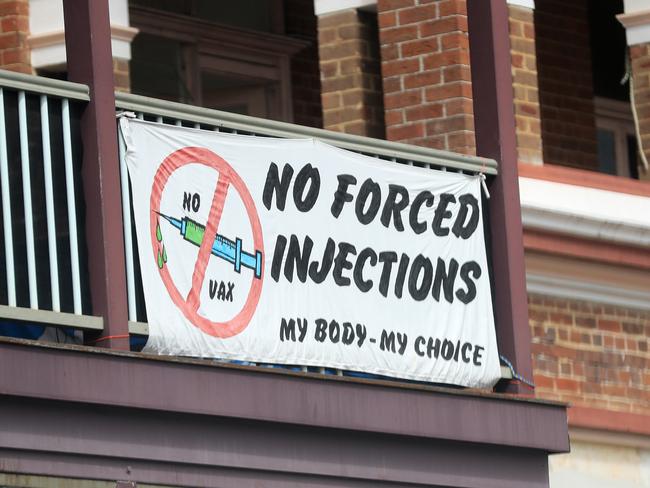
DO I RESPOND TO FACEBOOK POSTS?
That all depends on whether it’s worthwhile or even appropriate for you to engage on the social media platform.
“The reasons why it may not be worthwhile may be because if you think that family member is not very open to that conversation right now; or whether there will be a lot of other people that read that post, in which case you need to think carefully about how you will respond,” Dr Hooker says.
If you do respond, you want to say something that will keep matters calm and mutual, she adds.
“You can write something like ‘I respect your right to your opinion and I don’t want to attack you in public but I don’t feel it’s accurate and I just want to note that’. Or a lot of times saying ‘I love you but I disagree’ works better. The shorter the better.”

‘I RESPECT YOUR CHOICE, WHY DON’T YOU SUPPORT MINE?’
Find common ground by acknowledging that it is important to make your own decisions. But then express your concerns.
“You could say I am worried about how it will impact on our collective health and or people in our family. That is an honest and truthful statement but one that achieves common ground that is respected,” Dr Hooker says.
If it’s a post on social media, it’s better to respond privately than in public as this is not a piece of misinformation.
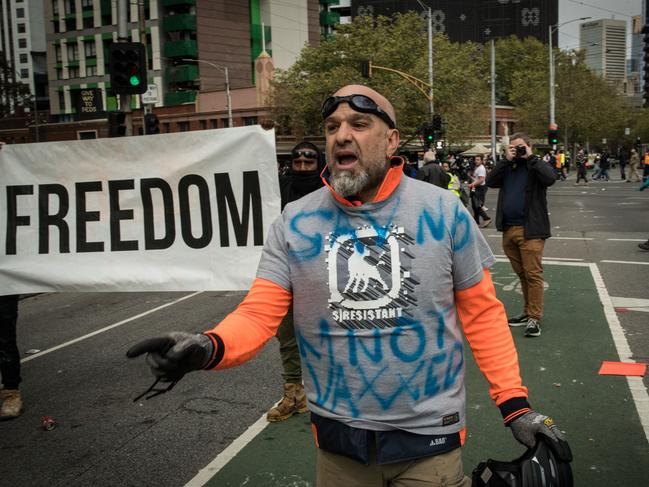
‘MY BODY, MY BUSINESS’
Acknowledge the true aspects of what they have to say, the things that you share with them, for example if you believe that people should make their own choices then explicitly say that you agree with them.
“And then you say very explicitly that at the same time it does have implications for others,” Dr Hooker says.
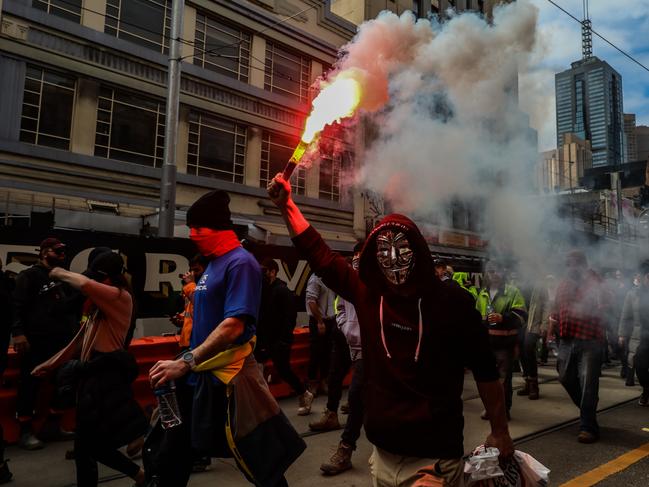
‘THERE ARE VACCINATED PEOPLE IN HOSPITALS TOO’
This is misinformation and one that you should definitely respond to in person or on social media. But first, do your research and collate information from reliable sources.
“Of course there are vaccinated people in hospital because there is a tiny percentage of people where we will see breakthrough infections where the vaccine won’t manage to activate the immune system sufficiently to stave off the infection. As more people become vaccinated you can expect to see a higher proportion of people in hospital that have had the vaccine. But that does not change the fact that the vaccine has prevented 95 per cent of people from ending up in hospital in the first place,” Dr Hooker says.
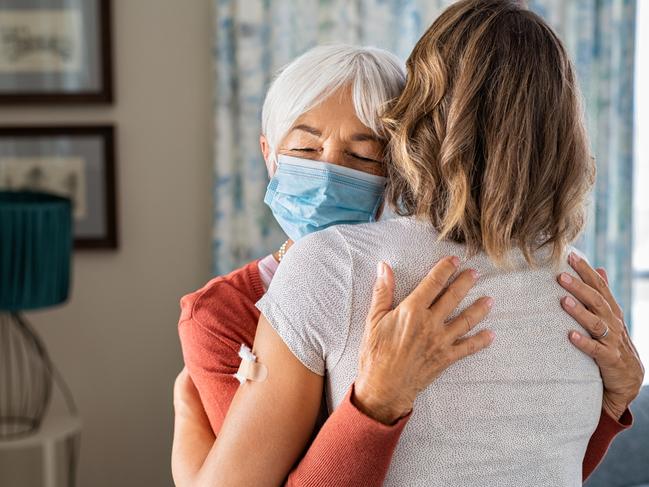
‘IT’S BEEN RUSHED THROUGH, IT’S NOT SAFE’
This is a clear piece of misinformation. Nothing about the vaccine compliance has been rushed.
Dr Hooker explains: “All that has been changed and sped up is red tape and bureaucratic processes. Normally it would take months and months to get human research ethics approvals just because committees don’t meet that often. In this case the committees would meet the next day.
It’s also because of open sharing of information globally because everyone is working towards the same goal. Scientists don’t need to keep their results to themselves to publish under their own name.”
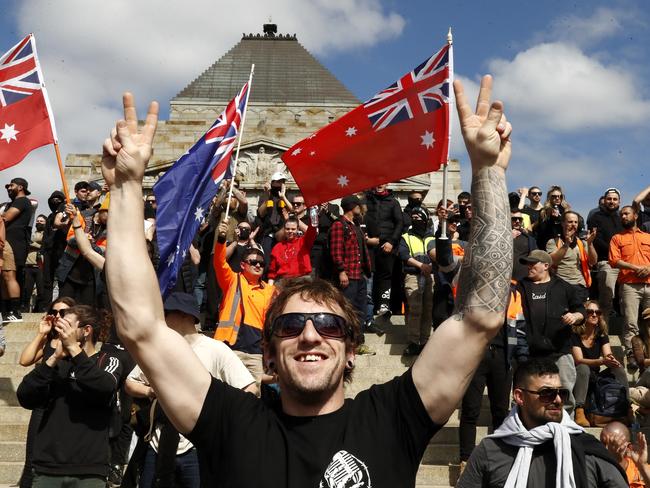
‘IT’S A CONSPIRACY AND I’M SAD YOU CAN’T SEE IT’
You are playing a long game with conspiracy theorists. This is someone who is feeling intensely mistrustful and extremely defensive. You have to understand things from their perspective.
“It’s important to understand that people who believe in conspiracy theories experience a very powerful sense of enlightenment. They have an urge to share the truth they believe they’ve uncovered – which is very similar to the urgency you may feel about ensuring that people get vaccinated.
“Again you need to prioritise having a good relationship with that person, the answer is always connection and compassion. And you acknowledge the places where you share common ground first, like ‘I often don’t trust information in the media’, ‘I can really relate to people that can’t trust government or government sources, ‘or ‘I understand how you feel, I spend a lot of time criticising pharmaceutical companies’. But then, you say maybe we just have to agree to disagree and I really hope you understand you are more important to me than our difference in opinion,” Dr Hooker says.
“And if you feel that your relationship can handle it in that moment, then you can maybe say I would really be able to share with you why I continue to have trust in this even though you don’t. So then maybe you can continue to be in dialogue with them.”
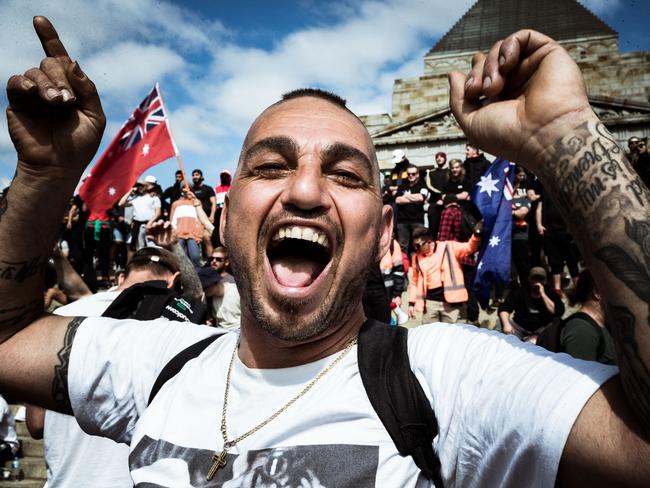
‘I’M FIGHTING FOR ALL OUR FREEDOMS’
This is a complex one because there’s a number of different ways to approach it.
“I would approach it by making myself shut up. I would say ‘what is it that you are worried about?’ ‘how do you not feel you are free?’ ‘what does freedom mean to you,” DrHooker advises.
“If I was going to respond I would say ‘so interesting that you say that because I feel that until all of us are free from fear of infection then none of us are free and that actually the vaccine is the biggest passport to freedom’. Or ‘wearing a mask makes me feel like everyone is free because no one particularly vulnerable people like elderly people and people with disabilities can do more things freely’.





